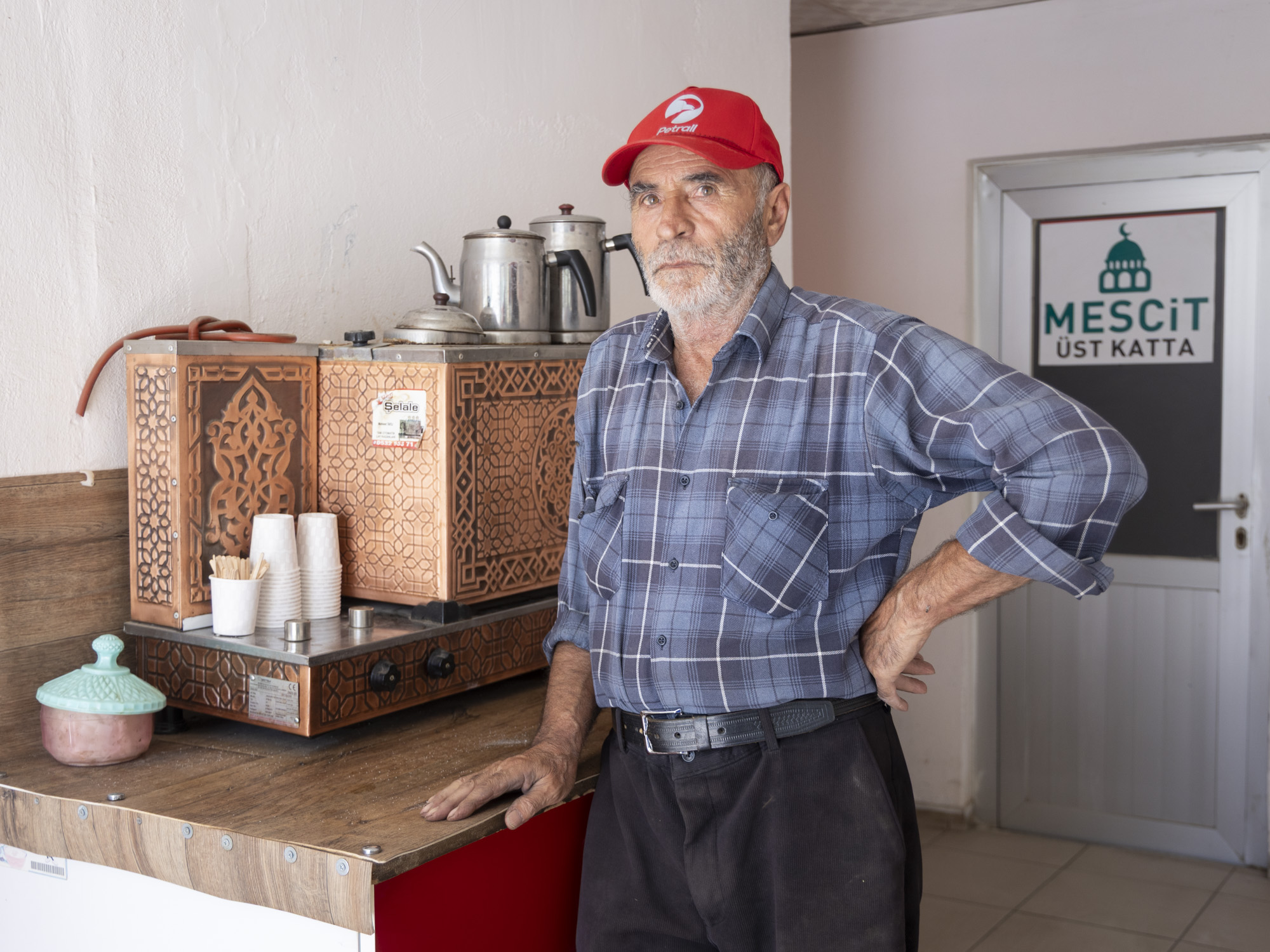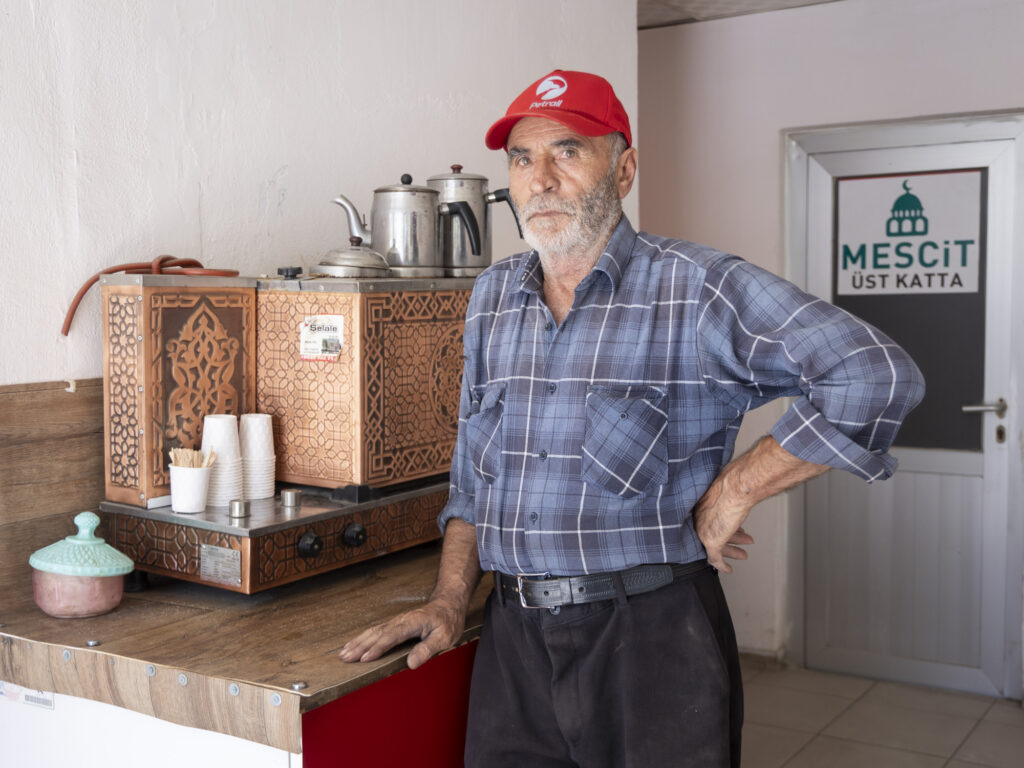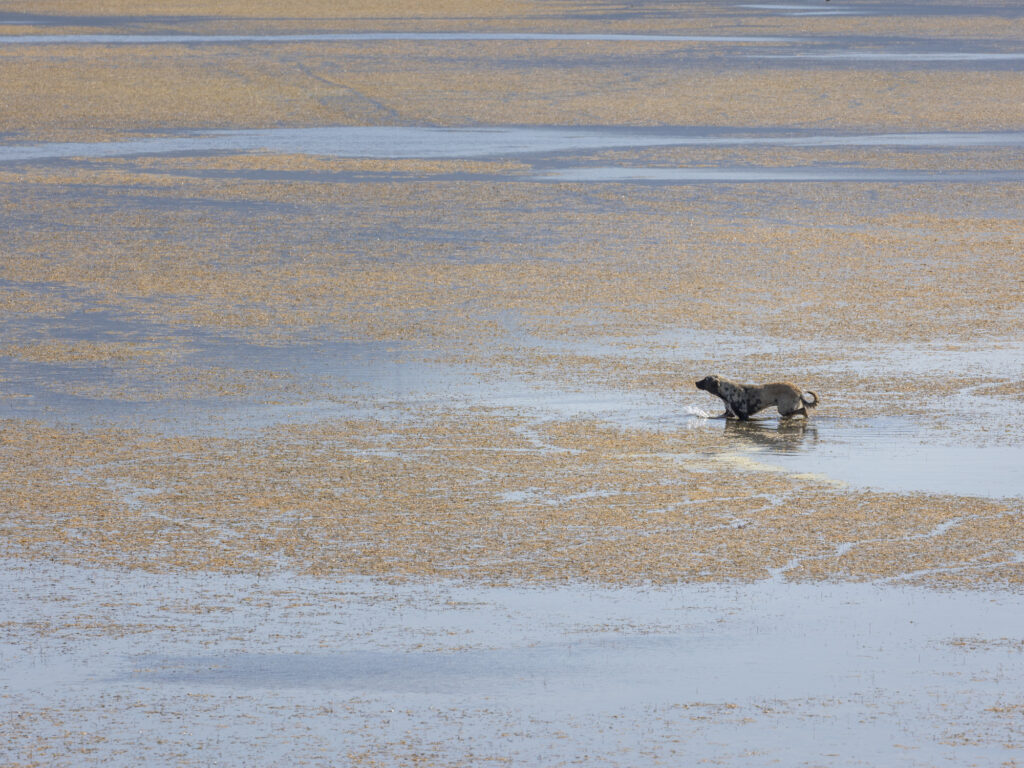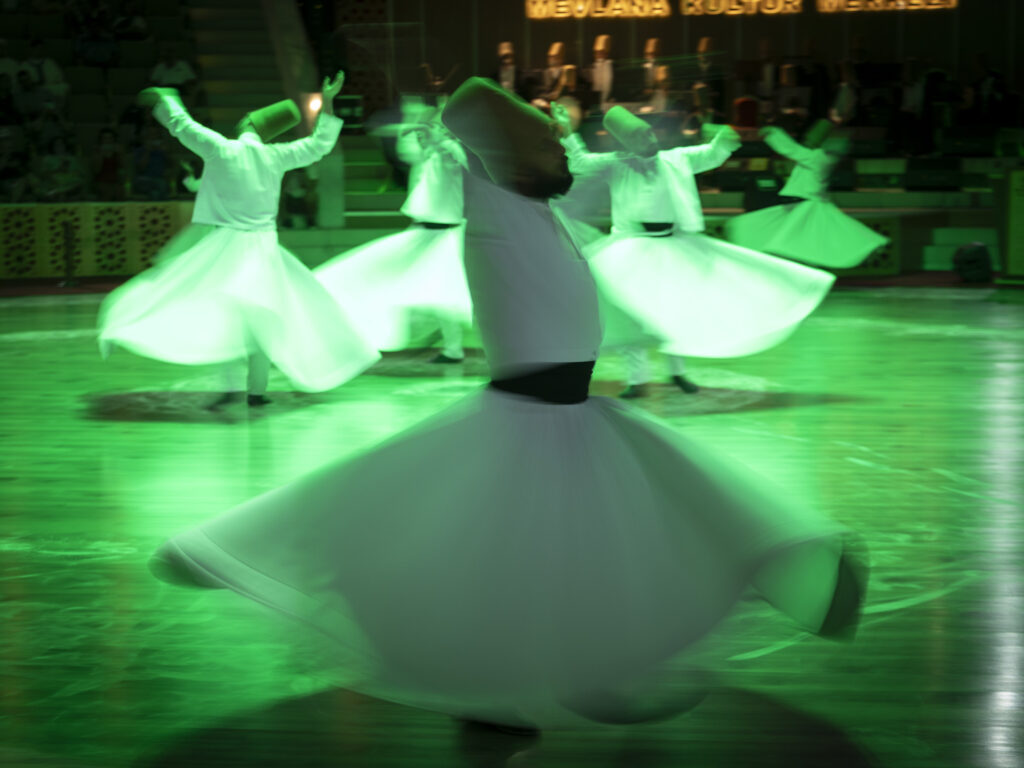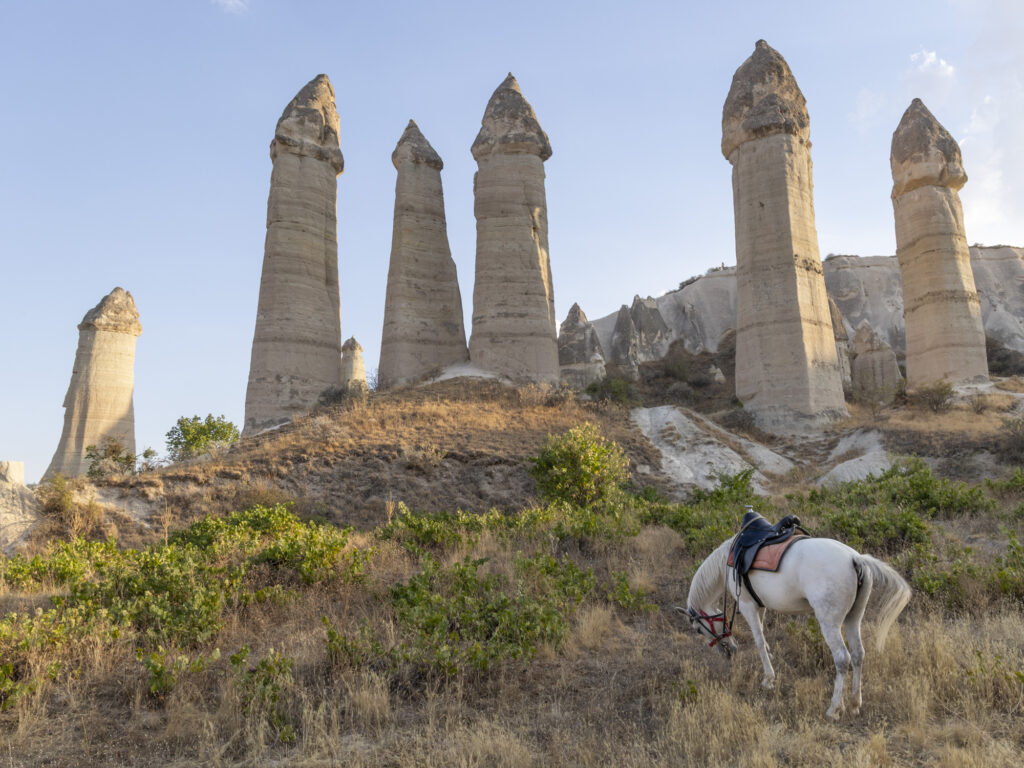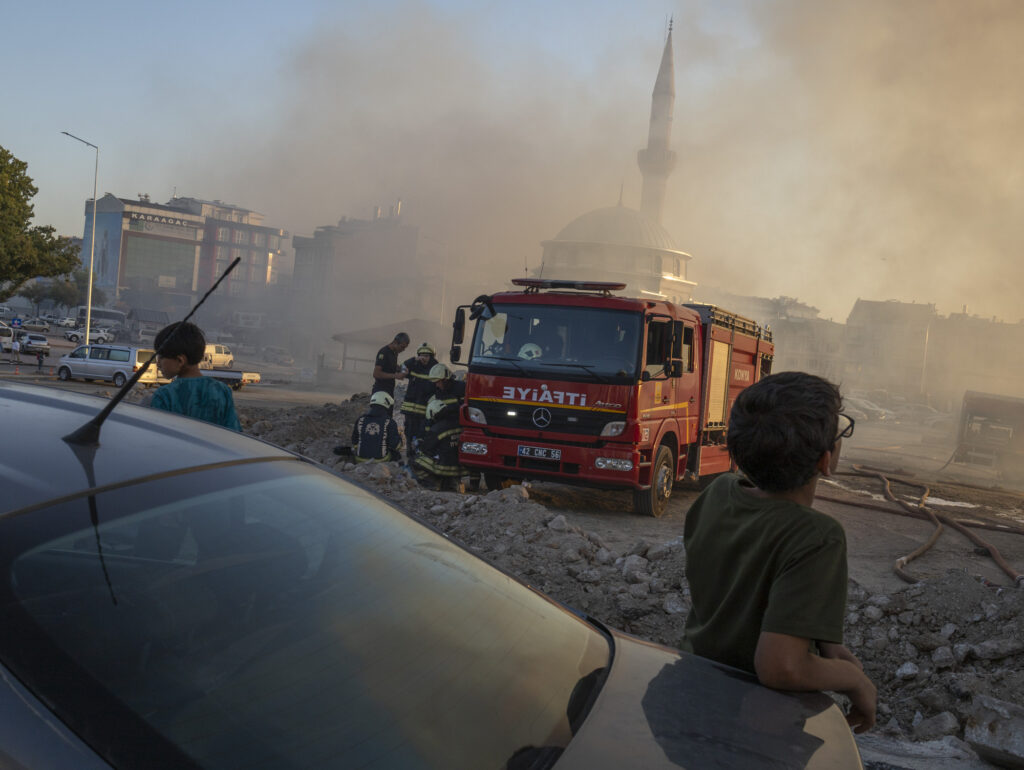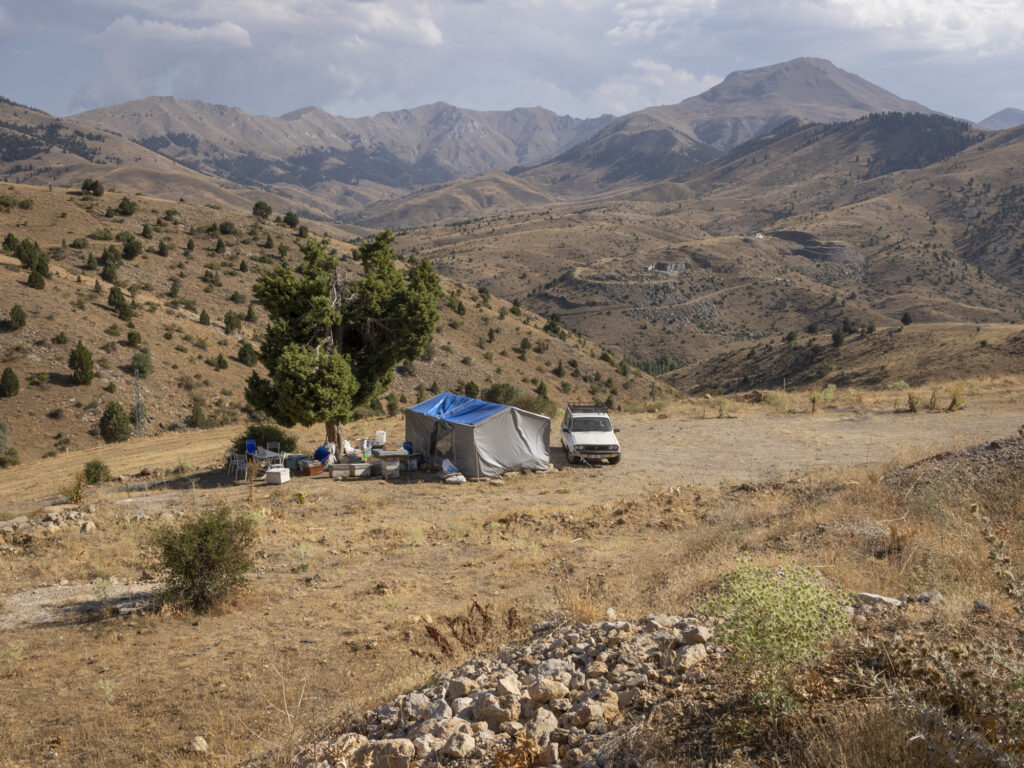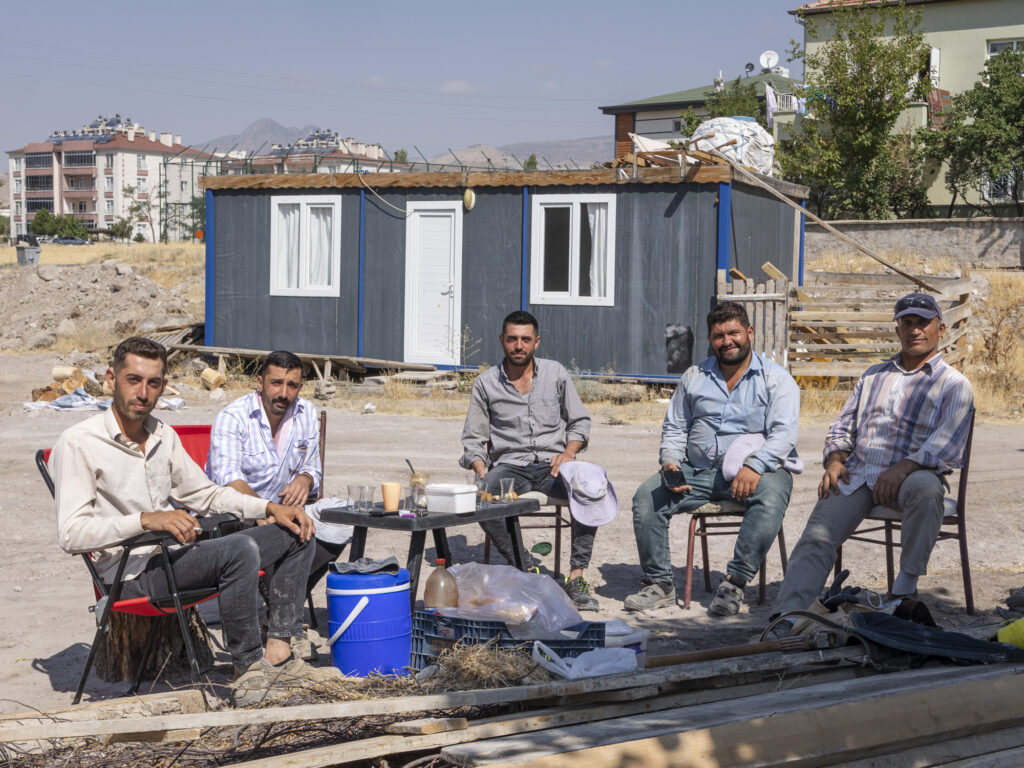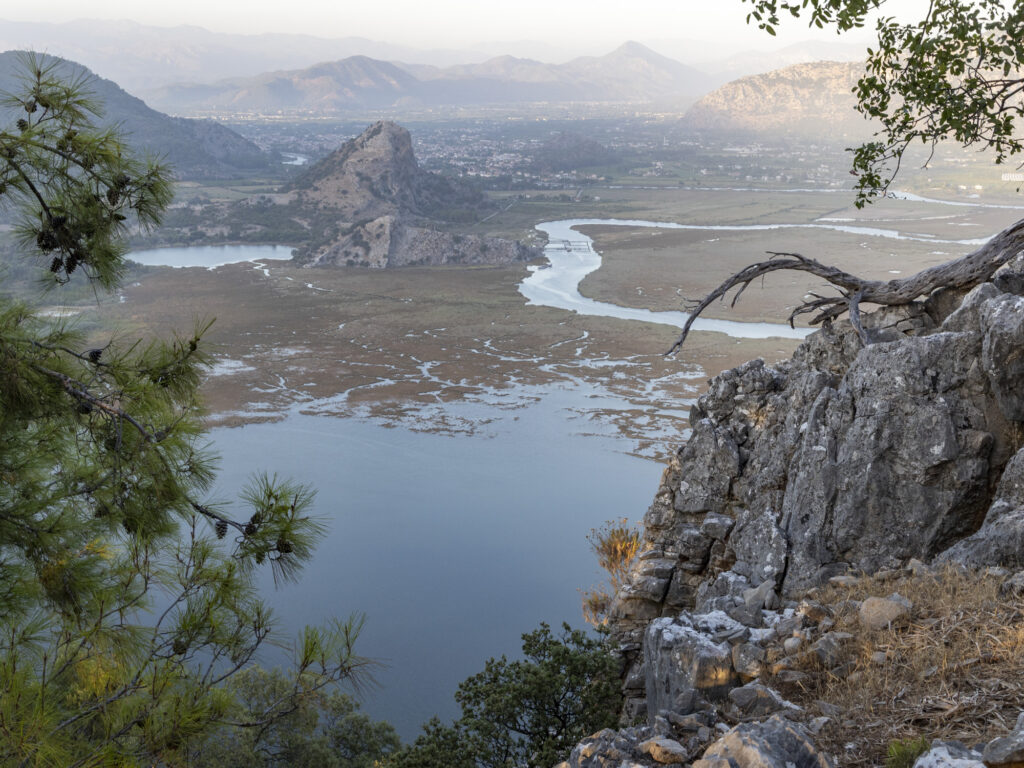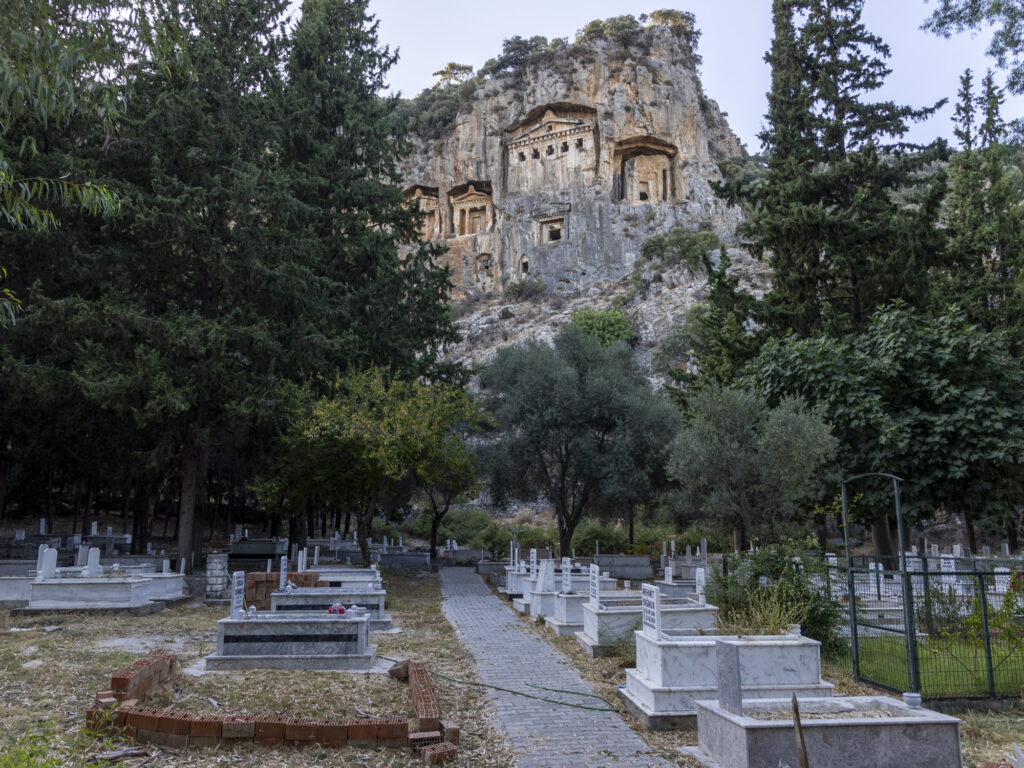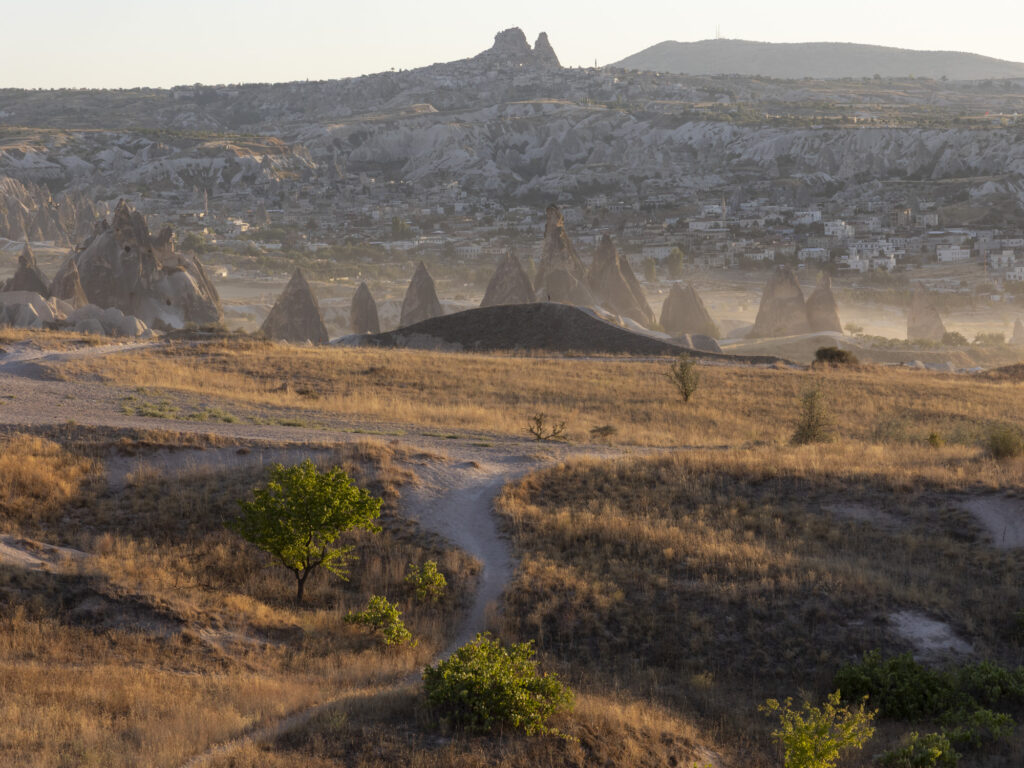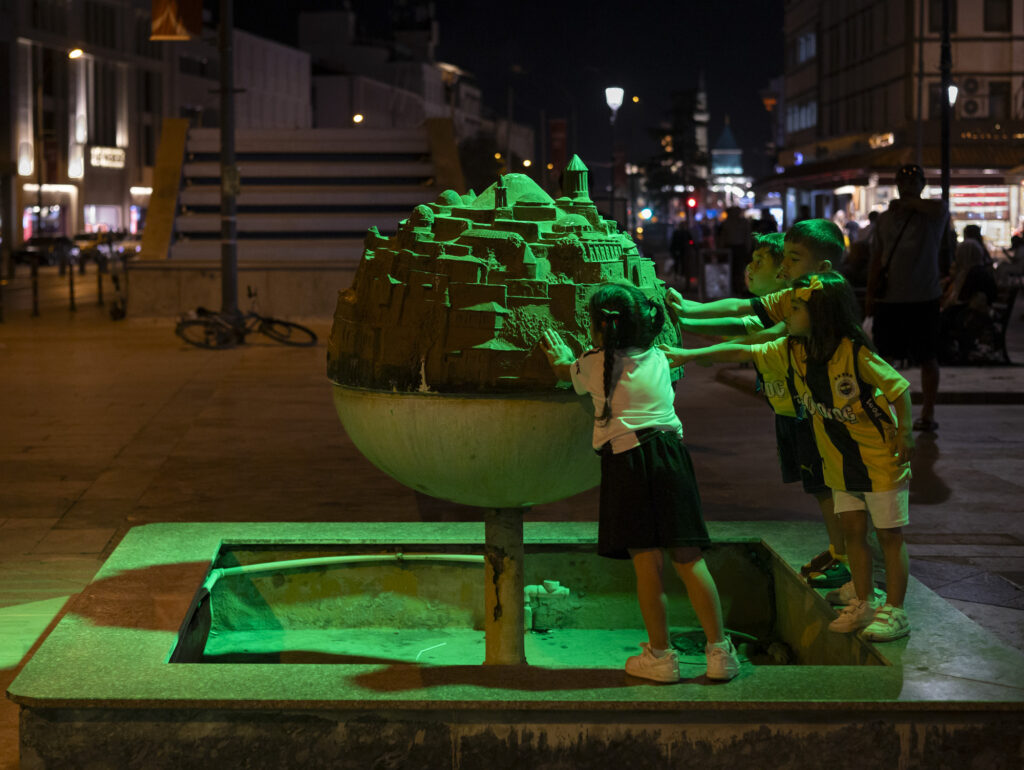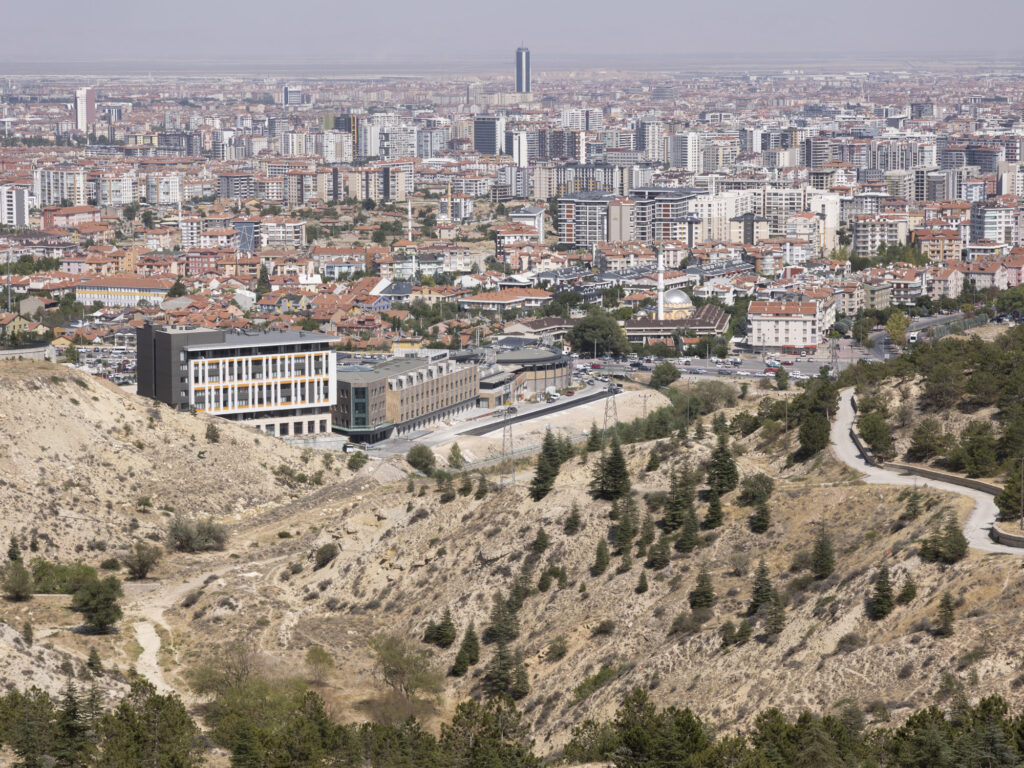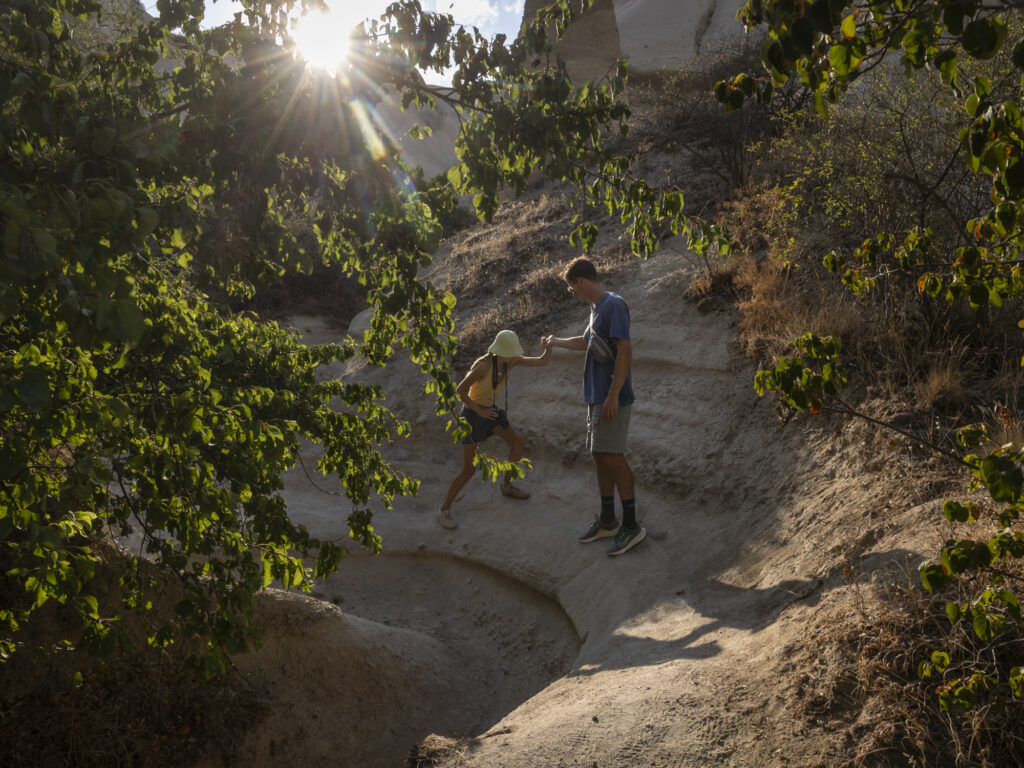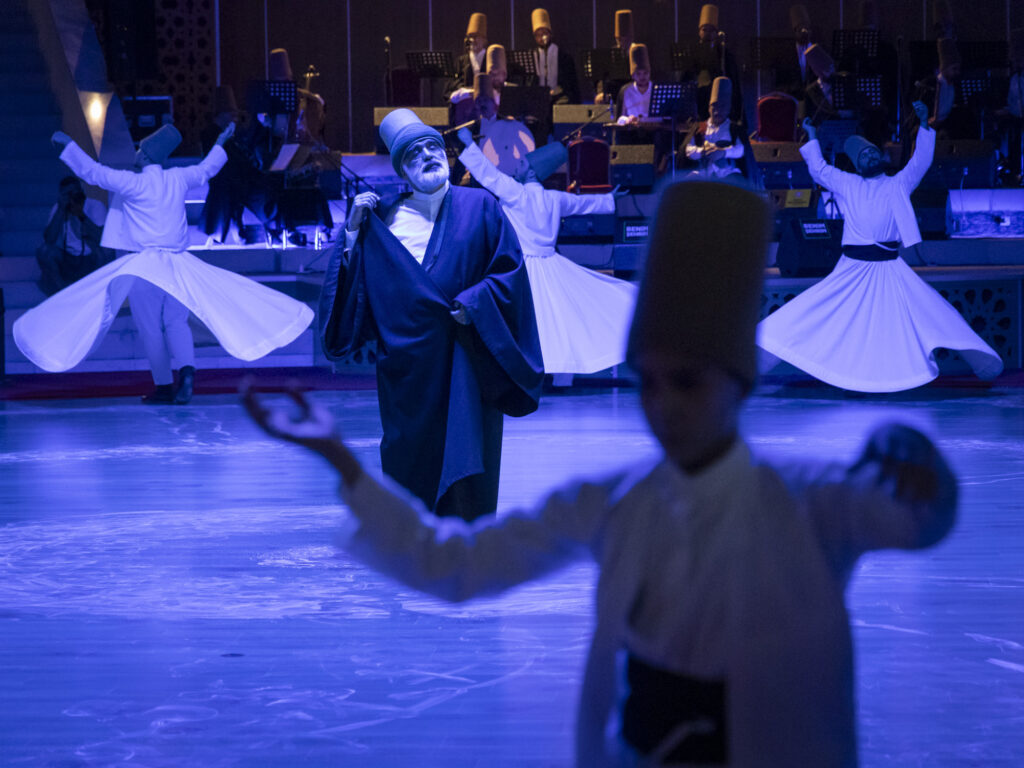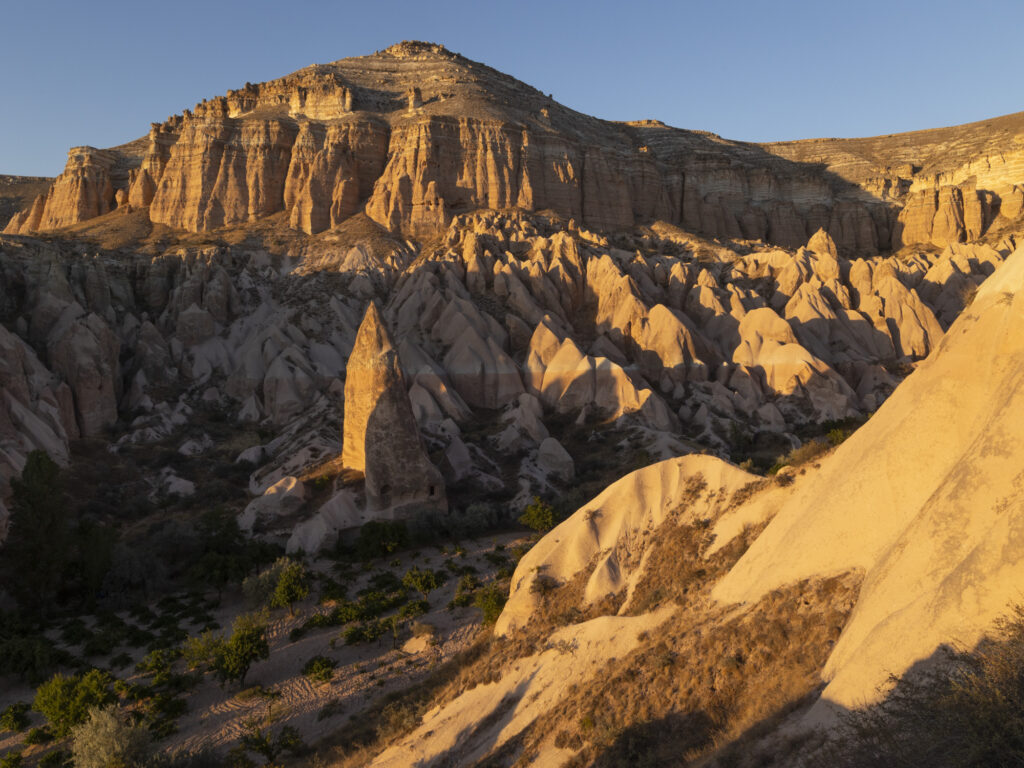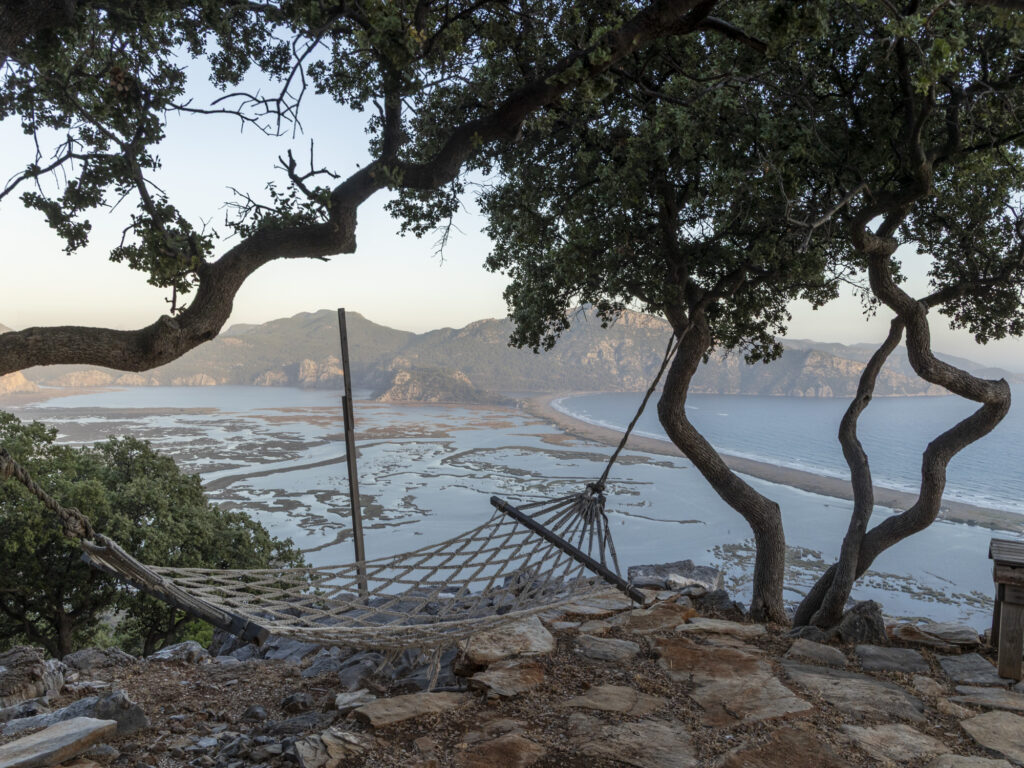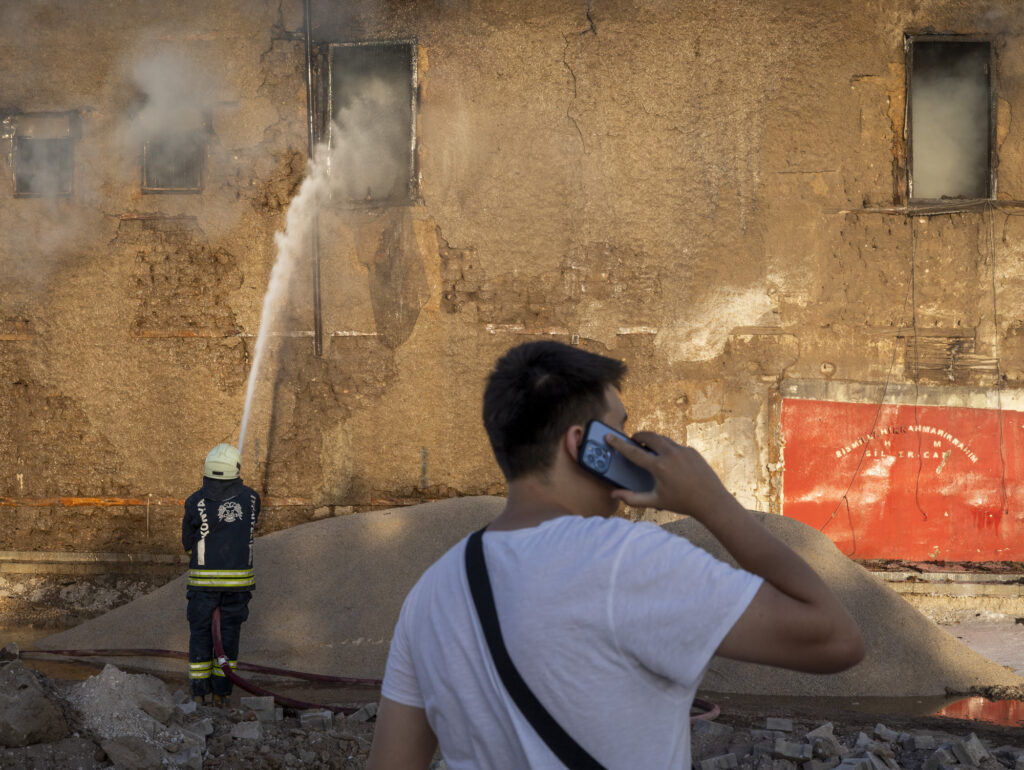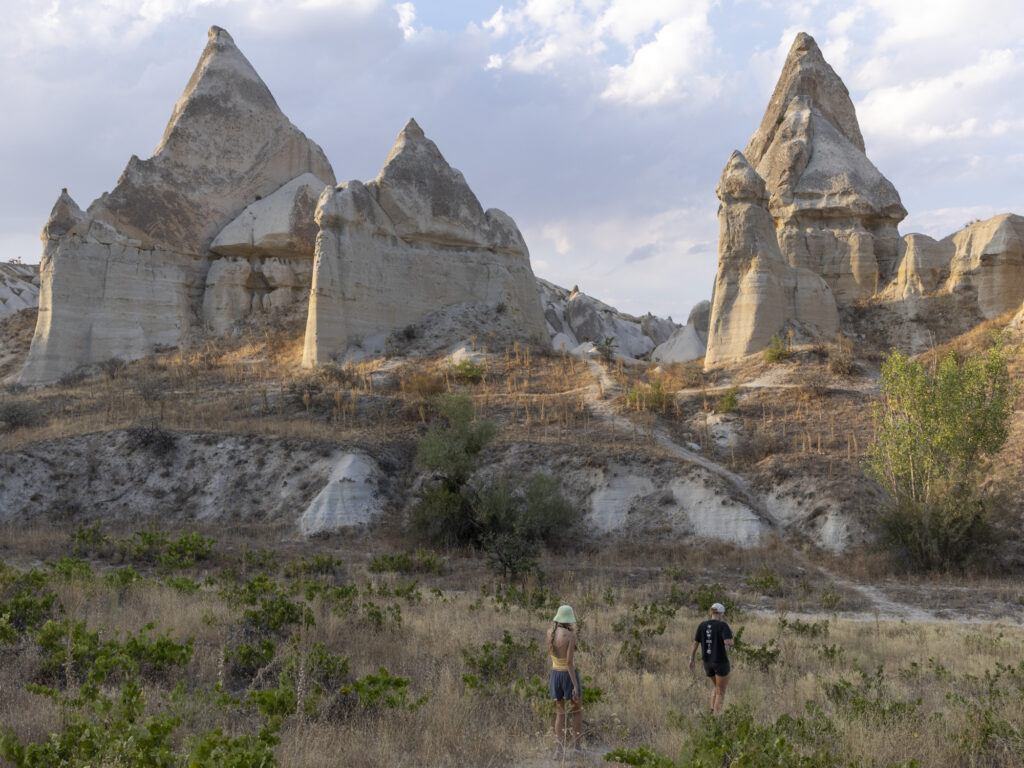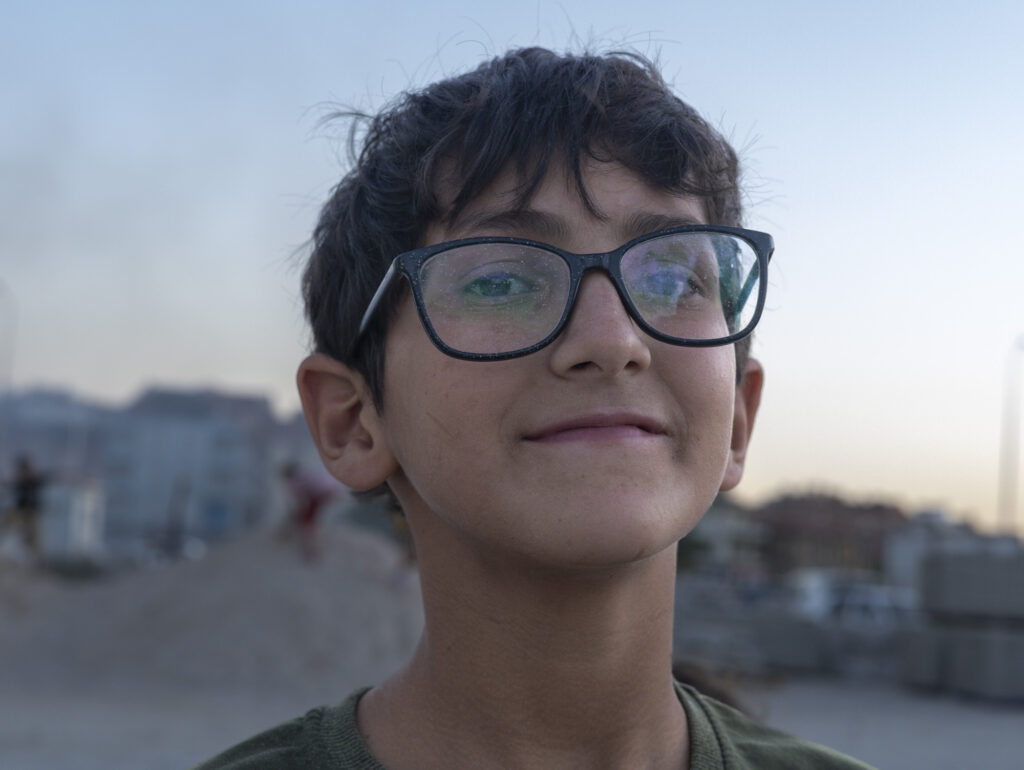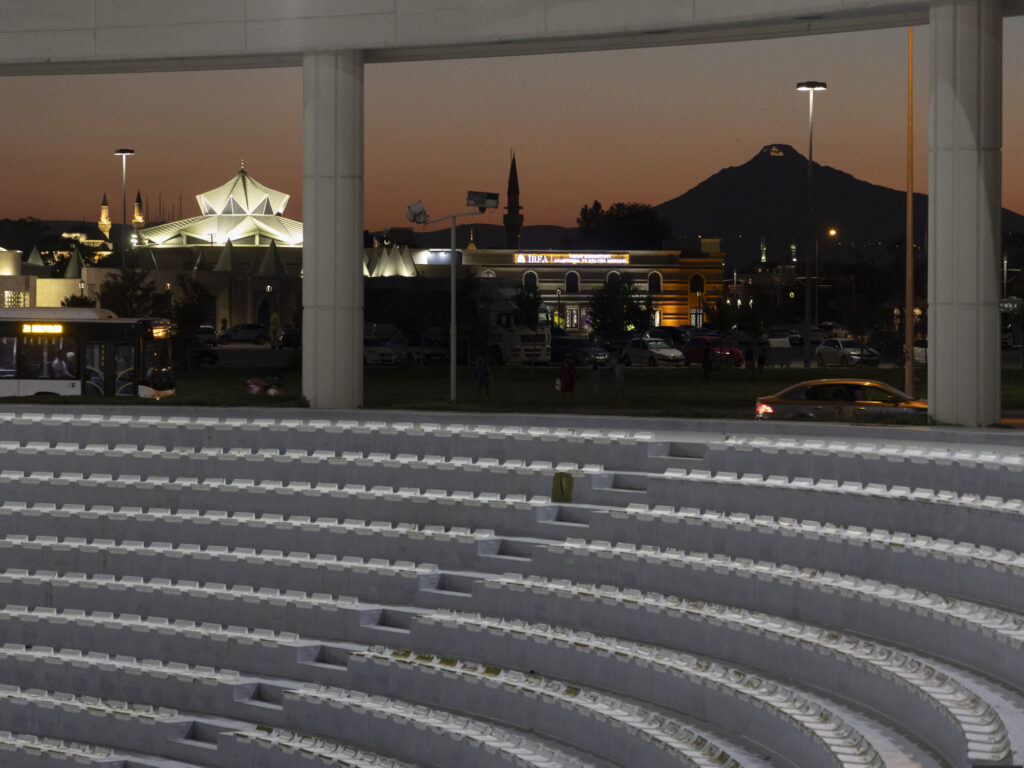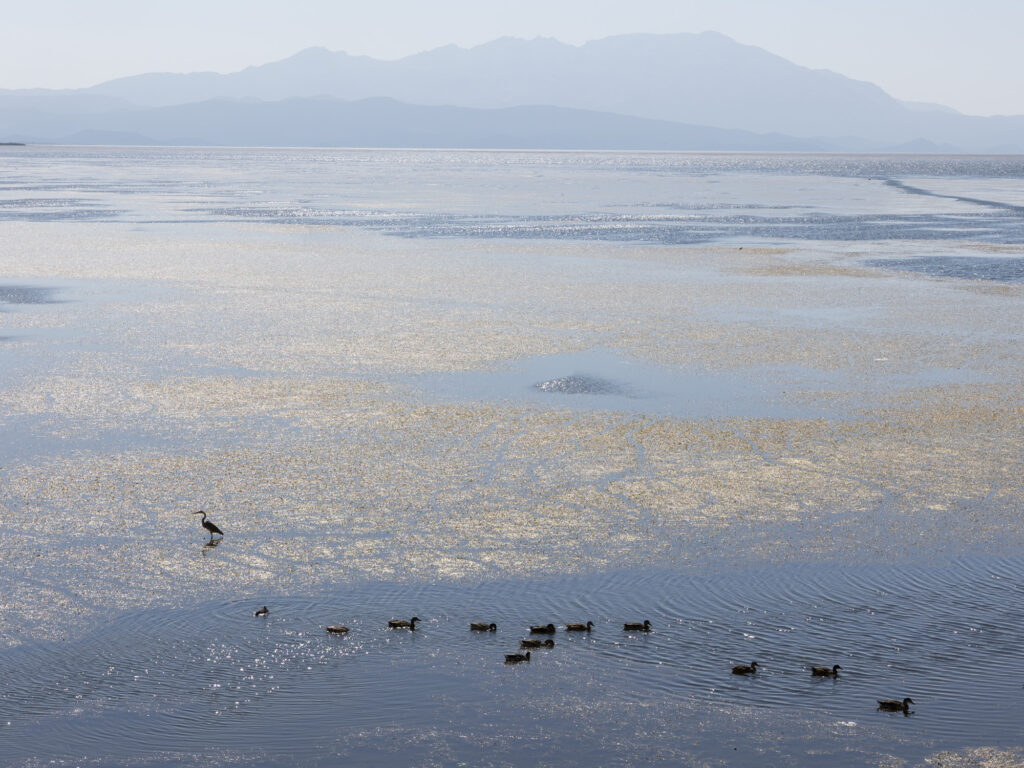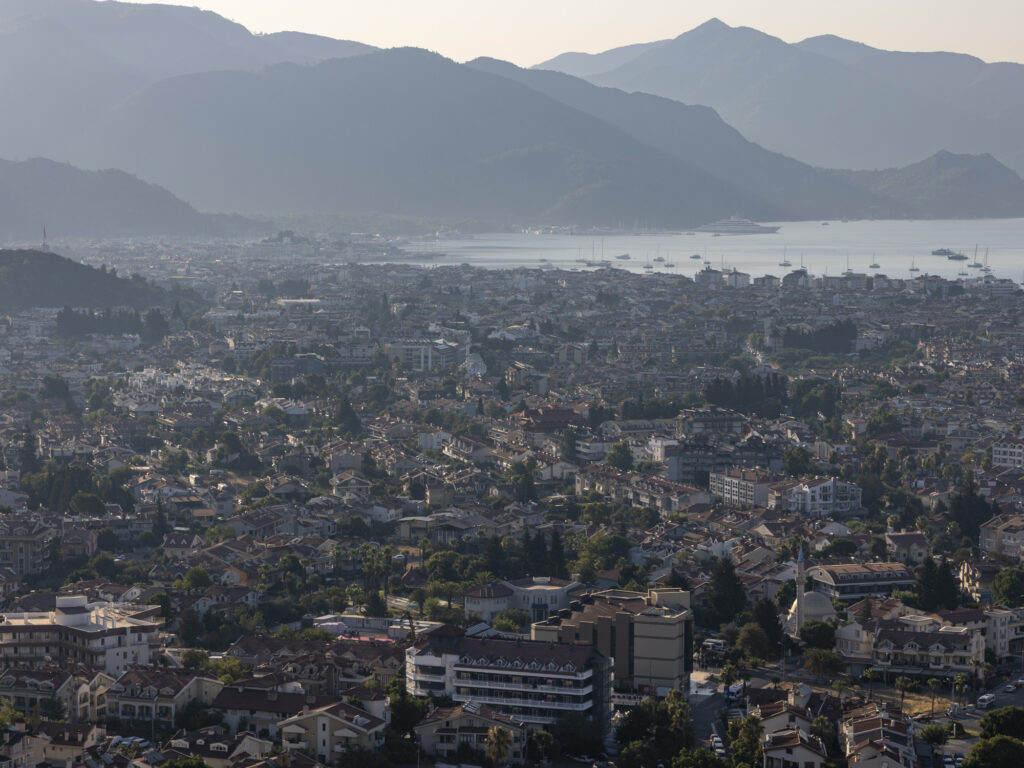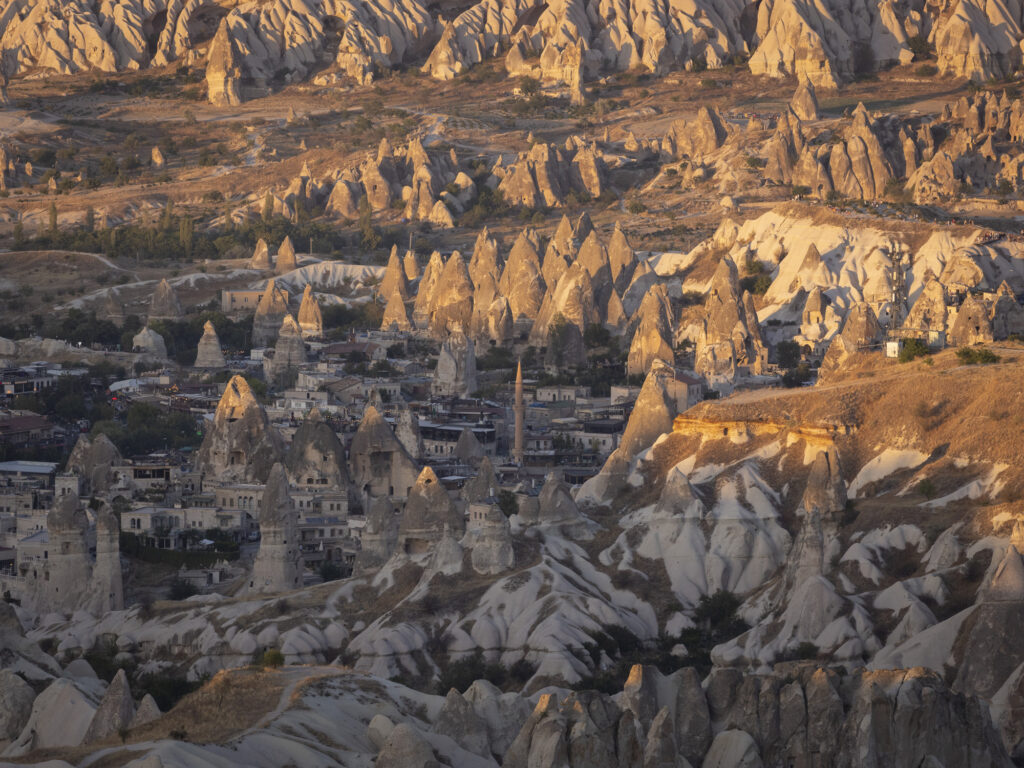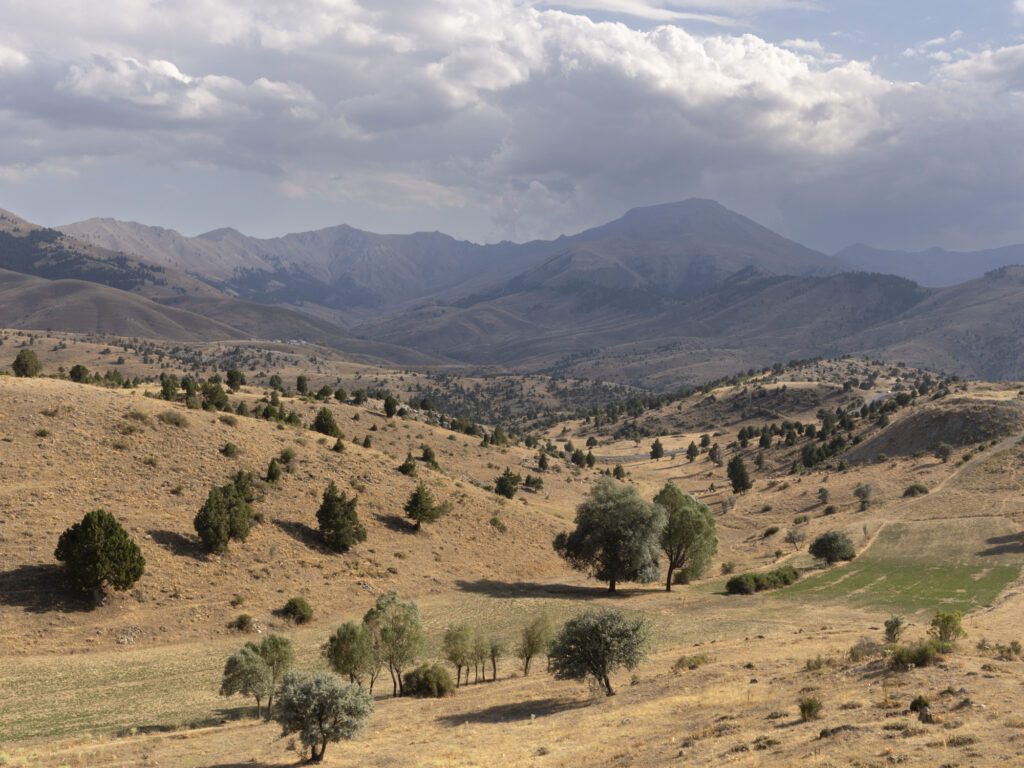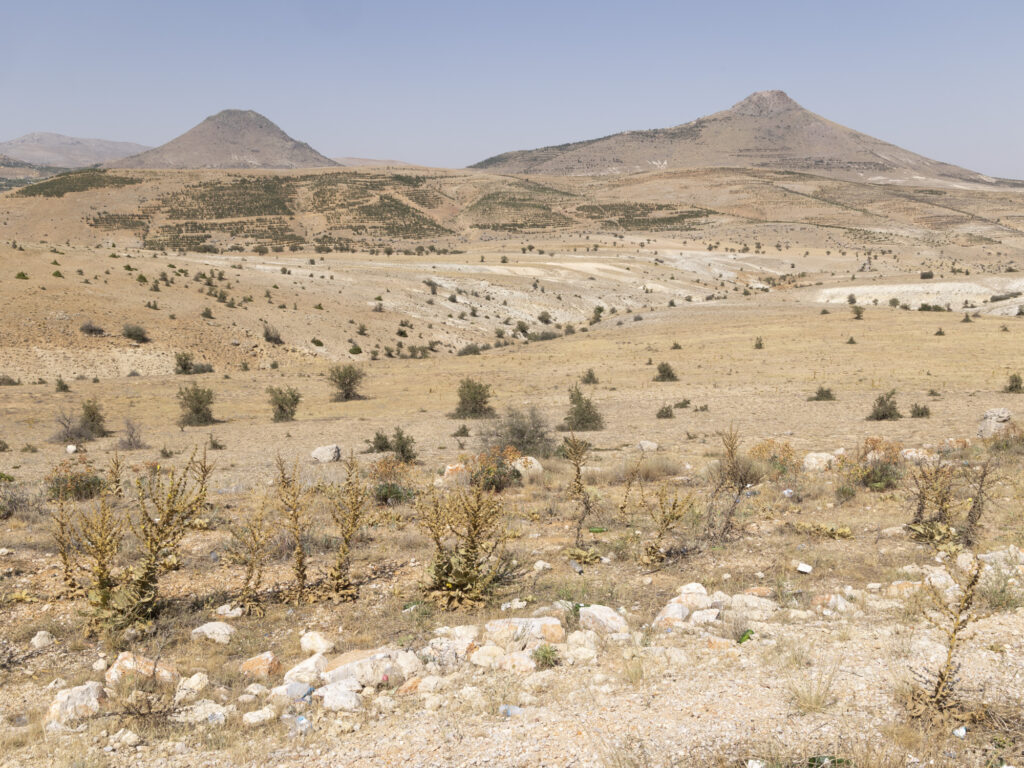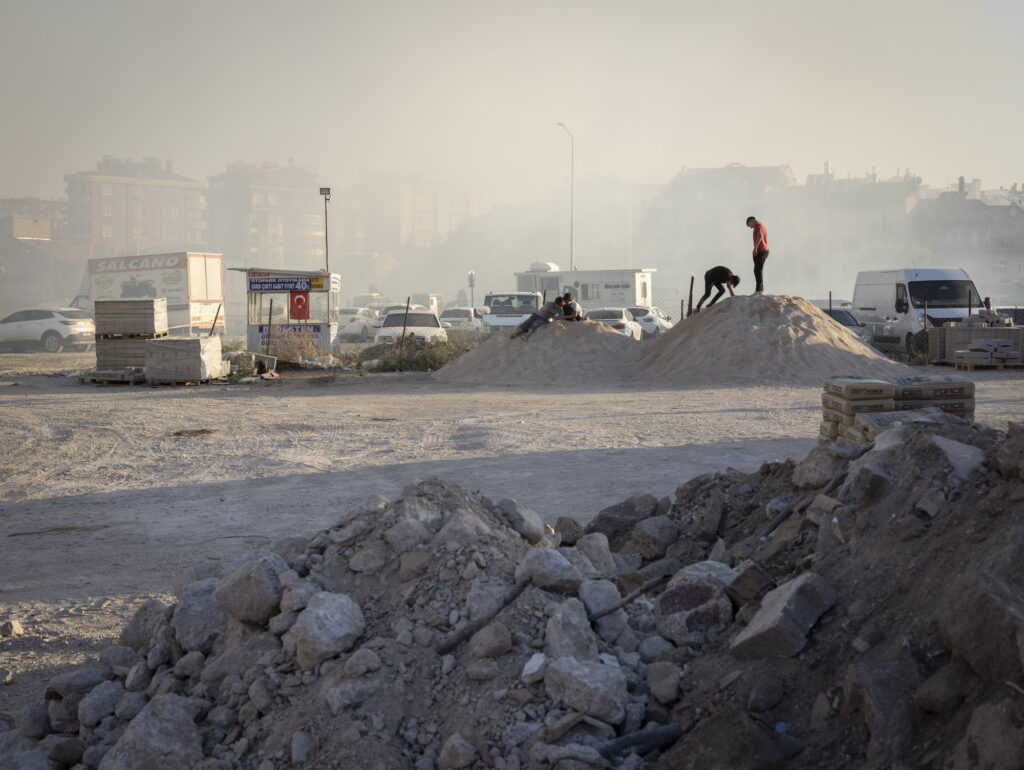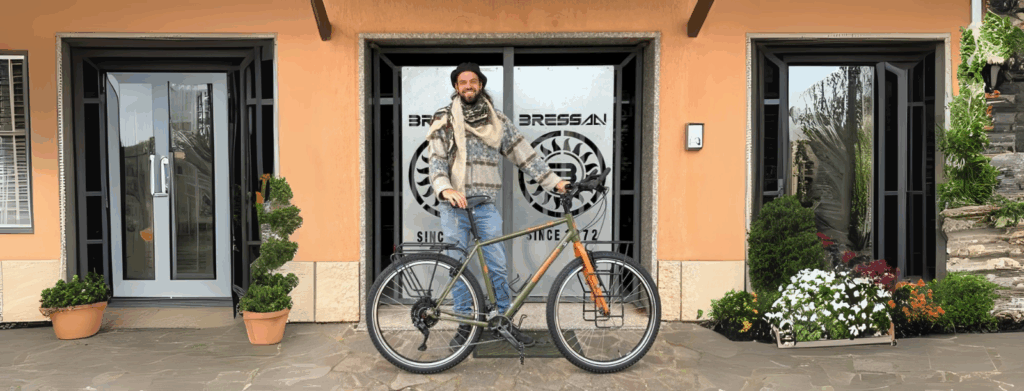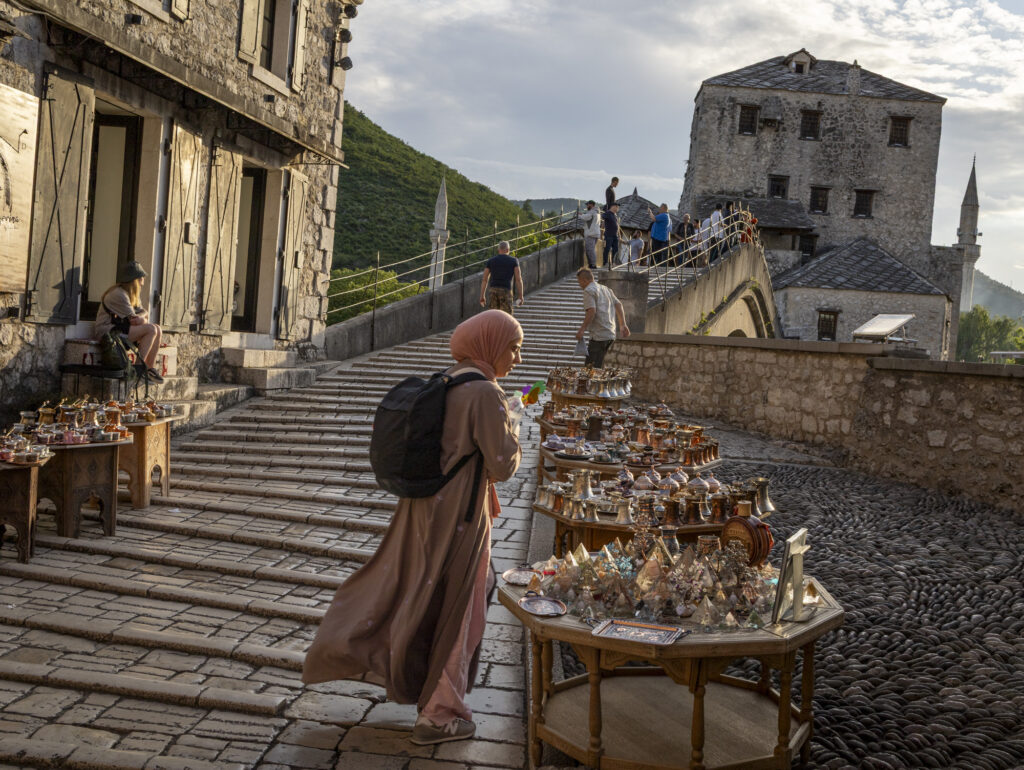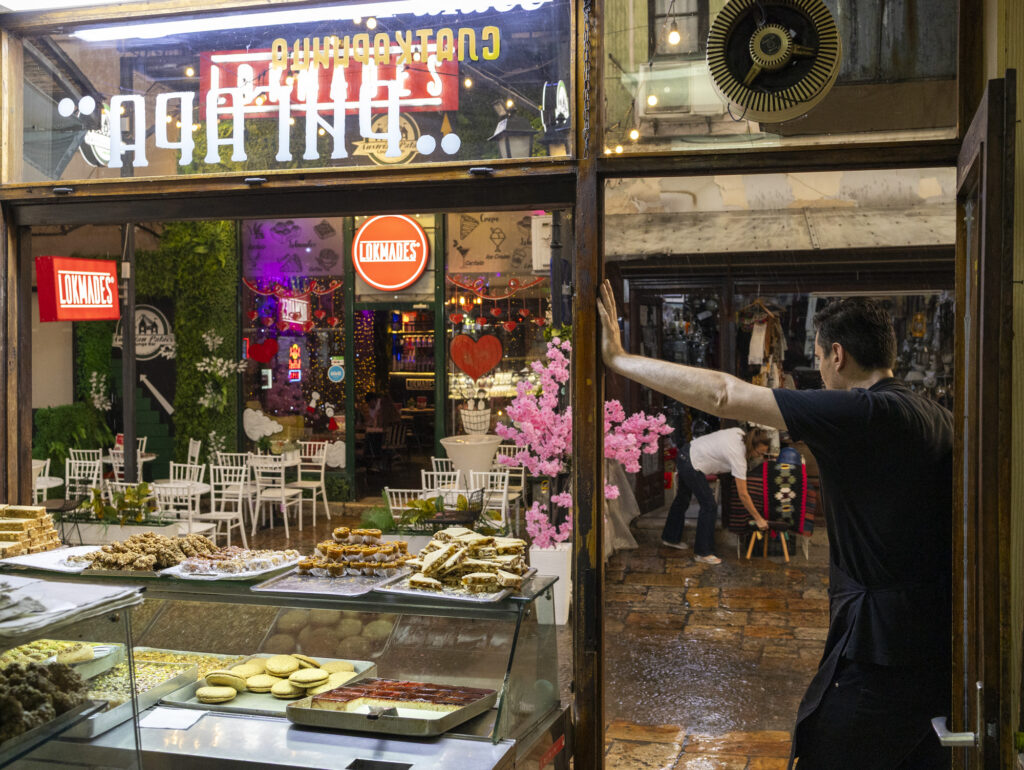Reading and studying are fabulous tools, precious opportunities, often essential for broadening our horizons. But they have a limit. The emotions they convey are filtered, secondhand. The senses, the true recorders of life, experience nothing of what unfolds before our eyes. Sight absorbs letters, images, videos. But we don’t feel fear, we don’t perceive smells, we’re not deafened by noise. We don’t sense the emotions of the people who share that place. Empathy stops at the limits of imagination, or someone else’s story. We don’t feel fatigue, the cold, and… the heat.
No matter how much someone might warn you, perception remains abstract. Then, when experience arrives, the music changes completely.
I had been warned several times about the Turkish summer. I knew that, despite having studied the climates of each region and tried to build an itinerary to enjoy each place to the fullest, I would have to endure some periods of suffering. And so, at the end of July, I’m forced to admit that even my heat resistance has its limits. Cycling during the day is madness.
So I have to start waking up at five in the morning, pedaling at dawn.
I reach the village of Dalyan and stop at a campsite a few kilometers from the center. At first, the only guests are me, along with the inevitable cats. A pregnant female wanders around with what appears to be her mate, a very beautiful and proud specimen. As I’m setting up the tent, he stops in front of a trailer with a lot of items left lying around. Very calmly, he turns around and sprays everything, marking his territory with urine. The warning is clear.
“Do you want some grapes?”
“Oh, thanks! I’ll take them, but I’ll eat them tomorrow morning. I’m very tired.”
The English here has the same effect as a fan on a sailboat. “No” sounds are meaningless, because in the end, you’ll have to accept it anyway.
With my teeth brushed and my eyelids half-closed, ready to retreat to my tent, I find myself instead sitting at a table, eating everything and anything, for almost two hours. New neighbors, who arrived that evening, have adopted me.
“Emiliano!! Breakfast!!”
So begins the next day. A family from nearby Kuşadasi opens their doors to me and drags me out of my sleep. The only one who speaks a little English is the ten-year-old girl; her older brother chimes in with a few words. The others smile at me and use the little girl as a translator.Fried eggs, olives, cheese, tomatoes, cucumbers, peppers, peaches in syrup, chocolate spread, chips, bread, watermelon, tea, and coffee. And thank goodness we’re camping.
Dalyan is home to some stunning Greek ruins, like dozens in Turkey. Among these, the tombs built into a rock face stand out. The landscape is also sublime: the delta of the Dalyan River flows into the sea like an impressionist painting. The water mixes with plants, islands, and shallows, creating small lakes, and reaches the Aegean only after skirting a large crescent of sand.
The surrounding mountains are often fenced with barbed wire, but once you cross it, you’ll discover places with breathtaking views.
My physical condition isn’t the best; perhaps I should rest, but after a couple of days, I decide to continue anyway. The night before leaving, I go to bed early and read a little before bed. It’s very hot, so I open one side of the tent to let the air circulate, something I’ve avoided doing until now. Lost in history, I isolate myself from the world, where nothing happens except the usual flow of silence. Suddenly, a downpour, and immediately afterward, something wets my arm through the screen door. I jump out screaming and see him there: he’s come to mark his territory. I go out, disgusted, and I think for a moment. If I answer, I declare war, and it’s a war I’ll lose. If I don’t answer… but I can’t just let him go like that, as if nothing had happened. I grab a water bottle, open it, and empty it toward the attacker. The feline runs away for a few meters, then stops to stare at me. It’s war.
The next morning, I get everything ready, load my bike, and go to use the bathroom one last time. I’ve left a few things on the floor, including my helmet. I brush my teeth and return, ready to go. It must have been two minutes. I put the last things away, put on my hat, and… something drips down my nose. I smell: cat piss. He, sitting on a table, licks his paws, pretending not to look at me. In silence, he rejoices. He’s won. Obviously.
The usual blue sky has something new today: after four weeks, I see clouds for the first time. Tiny, but clouds nonetheless.
My body, however, is struggling. Only a man who stops me to give me some figs along the road manages to cheer me up. He has a lot to say and a sincere smile, despite only one tooth. I don’t understand anything, but he saunters off, happy.
When legs aren’t responding, the mind searches through the bags: what the hell weighs so much? I think back to life in Bologna, the comfort, the feeling of always needing something else: a technological object, a kitchen utensil, paintings, a lamp with a more pleasant light. And so, we accumulate more and more things.
On this type of trip, perhaps, one still seeks a form of comfort, but with much lower standards. Often, however, the process is the opposite: instead of accumulating, we try to understand what is essential and what we can leave for others along the way. A beautiful work of internal cleansing, even before the actual objects themselves.
The days continue in the usual heat. At night, I sleep on a leaky mattress, dripping with sweat. My stomach bulges, forcing me to stop for a couple of days in the city of Fethiye. Then, with difficulty, I manage to get going again, passing through the coastal towns of Kaş and Demre, finally arriving in Olympos, the last real seaside stop before entering the Turkish interior. One last binge of music and beer before plunging into the Middle East.
Here I meet Can, who introduces himself as a marketing manager in Istanbul, but then, in a low voice, reveals he’s a policeman. He doesn’t want people to know, because often, when they find out, their attitudes change. Many are afraid of the police, convinced they’re right-wing and support everything the government does.
Can, however, tells me he supports neither the government nor the party. For him, work is a pain. He tells me he often receives calls from politicians telling him not to investigate certain matters, and to let others slide. He’s against it, but he has to obey. He works in the east of the country, in very complex areas predominantly inhabited by Kurds. Despite his Kurdish mother, he can’t build a life there; he has no friends outside of his colleagues. His uniform makes him look like an enemy, and threats are frequent: “You can relax now only because the terrorists (PKK) let you. They’ll kill you whenever they want.” “Stress, stress, stress,” he keeps repeating to me.
The PKK is a political-military organization that has been fighting in southeastern Turkey since 1984 for the recognition and autonomy of the Kurdish people. Following years of guerrilla warfare with the Turkish army and terrorist attacks against civilians accused of supporting and aiding the Turkish government, they have been classified as terrorists by all Western powers. In May 2025, however, after more than 40 years of guerrilla warfare, they officially laid down their arms, dissolving their armed group. This pivotal event will open a new chapter in the future of the Kurds in Turkey and beyond, and it certainly makes it easier to travel through southeastern Turkey.
When I tell Can my plans, he shakes his head: “No, buddy, don’t go there. The people in those cities are mean.”
He’s not the first, and he won’t be the last, to speak ill of the areas inhabited by Kurds and Arabs, both in Turkey and Iraq. “You’re crazy, do you know where you’re going?” I hear this repeatedly during my weeks in the west of the country. At the same time, however, there are also many people who speak enthusiastically about it, praising the incredible hospitality of the Kurds, the beauty of the mountains, the multiculturalism of the cities.
Olympus is a wonderful place, but far too touristy. It’s pleasant, however, for a last breath of Western culture and some alcoholic fun. The longing for a deeper world, however, soon drags me away.
The road takes me to Antalya, to buy a new mattress, and then up the mountains, toward Konya.
The first day of travel is scorching and long. The temperature is above 40 degrees Celsius again, so much so that in the afternoon I’m struck by a few fainting spells. The night is almost impossible.
The next day is even worse. At 9:30 I start to struggle. At 11 I’m forced to stop. I try again around 4:00 PM, with disappointing results. At least I’m cheered up by the people along the road: some Kazakhs who run a shop who fill me with sweets and drinks, and some young men who offer me melon during a climb.
That evening I arrive in the small village of Beydiğin, where I’m so exhausted that I hope to find a room and stay two nights, but there’s no place to stay. I’m forced to sleep under a shed, with a tent, among chickens and tractors. And the next day, the alarm goes off at 4:15.
I have to tackle the toughest climb. With a flashlight on my head, I start pedaling while it’s still dark, and like a mantra, I begin to reel off the hairpin bends one after the other. It’s around 6:00, the sky is pink.
A red car is stopped in the oncoming lane. It’s old, at least from the 1980s. A mother is making her youngest child, three or four, pee. Her little brother, slightly older, is crying a few meters away. It sounds like the rooster’s crow that accompanied me leaving the village. The father, very young, is turned toward the road and smoking a cigarette in absolute silence, leaning against the hood.
I’m dying.
I see the car heading downhill, him smoking, the soft seats, the engine running on its own. I wish the sun would never come out, that the world would remain that cyberpunk pink forever. I wonder who’s struggling more, me or that young father.
Shortly afterward, the sun comes out and the wind begins to blow hard against me. I push on the pedals but my sandal breaks in two. I fix it and, with great effort and numerous pauses, I drag myself to the entrance of a long tunnel. For the first time, one of my worst cycling nightmares turns out to be a dream: five kilometers of pure love. Shade, a breeze, a gentle climb.
I arrive at the village of Başlar hoping to find some food. Between stone houses and the beating sun, I enter the tiny center, with its mosque and a grocery store. About twenty old men stare at me. Some return the greeting, others remain as still as the stones of the buildings.
I enter the store. The men smell of hay. The shelves are filled with only household products: biscuits, chocolates, chips, and soft drinks. Not a single fruit or vegetable. Luckily, at least some fresh bread arrives shortly.
I sit outside and drink a Coke. Everyone is on the other side of the square except me and a man talking to himself. He’s sitting on the ground, drinking sparkling water. He burps, he stammers, he smokes, he burps again. The village idiot. And I’m with him.
I set off again, but my endurance is short. I stop for a nap under a tree, spreading the blanket I just bought on the dry grass. I sleep a little, eat, and finally decide to set off again. But a surprise stops me: the grass was hiding hundreds of spiny balls, fiercely clinging to the blanket. I try to clean it, filling only my hands and arms with tiny thorns. My nerves are on edge. A serious mistake, because when you’re angry, everything becomes more tiring.
I set off again, grumbling, stopping every few hundred meters due to the climb and the heat. I constantly seek shade to catch my breath. A sudden buzzing noise accompanies one of my drinks, followed by a sharp pain in my thigh. A wasp escapes from my swimsuit and scuttles away. I grit my teeth, but now I expect anything.
After eleven hours, I reach the pass. Luckily, there’s a fountain. Finally, it’ll be downhill from here, and then I’ll be able to enjoy the plateau.
On a day like this, however, a cruel twist is just around the corner: a strong headwind arrives, making even the last few kilometers arduous. A slow, increasingly exhausting drag.
Along the road, now flat and surrounded by fields and mountains, there are many farmers selling their produce, especially strawberries. I watch them several times, thinking about stopping, but then I always keep going. At yet another break, this time very close to a stall, a family calls out to me: they must have seen my distraught expression. They give me strawberries, tomatoes, and cucumbers. Their faces are marked by fatigue, their clothes are dirty, and they have the smiles of those who know the simple value of generosity.
A little further on, I’m stopped again. There are gazebos for prayer and a fountain. I’m so tired I’m tempted to sleep there. When I arrive, I’m greeted by a man who gives me a slice of watermelon. Other people approach and we start talking. We’re only 5 km from the village, and they tell me there’s a guesthouse where I can stay. It’s worth making this last effort. Let’s go.
I slowly arrive in Derebucak. The man who told me about the guesthouse takes me into custody. We ask around, but the keys are with the owner, in Ankara. Another man shows up and invites me to dinner, saying they’ll think of a solution in the meantime. Better to do it on a full stomach.
I’m eating when yet another man stops: “What are you doing? Where are you sleeping? Come with me, I have a place for you!” I finally found myself with an entire guest house, on a day when slaps and caresses left me deeply stunned. Something, however, changed from that tunnel.
I continue my march. I’m rejuvenated and the worst is over. Most importantly, I’m on the plateau, at over 1,000 meters, and the temperature is human: 33-34 degrees.
After a brief break, I set off again, quite calm. I’m pushing up a hill when a car pulls up alongside. I prepare to say hello and receive the usual bottle of water. But when I look, instead of a “Hello,” I hear someone shouting: “Emiiii!”
For a moment, I’m taken aback. Then I recognize the face: it’s the brother of one of my dearest friends. We come from the same village. I can’t believe it! They stop, we hug. I’m as excited as a child. It can’t be true, and yet it is. The emotion stays with me all day. I pedal with wings. I pass the great lake and the city of Beyşehir and, after five days, finally arrive in Konya: the city of the whirling dervishes and Rumi, the great Persian poet and mystic. Here, the spiritual heart of Turkey, one breathes the legacy of Sufism, the mystical path of Islam that, through divine love, poetry, music, and dance, seeks direct union with God and the annihilation of the ego. In the 13th century, the mysterious dervish Shams Tabrizi became the friend and spiritual guide of Mevlânā Rumi. Their dazzling encounter awakened in Rumi the poetic and mystical ecstasy that led him to compose immortal works and found the order of the Whirling Dervishes. After his death, Rumi’s mausoleum became a worldwide pilgrimage site, a symbol of the divine love that is the cornerstone of Sufism.
The impact of the city is immediate. The atmosphere is different from the rest of Turkey I’ve known. The people are extremely kind, they look at me with wonder and welcome me with smiles. Even the faces are different; it seems like so many different peoples are mixed together. Spirituality is palpable in the air, thicker than traffic, noisier than the bazaar.
I find myself sleeping in a neighborhood that is announced to me as dangerous, but which I find extremely fascinating. Among narrow streets and broken cobblestones, it’s always alive. Children play in the streets until late at night, old people drink tea, red-light nightclubs, bakeries, barbers. I walk aimlessly, ready to receive whatever chance brings for me.
I still have so much to understand in life.
I feel that I am receiving immensity, that my path is rich and fortunate, that in many things there is a master. But I also feel the need to give all of this back in some way. Along the way there are pleasures and distractions. I am not one to live at the expense of others. Sometimes I do stupid things, especially when I’m drunk or break rules that some consider necessary, but always because I’m looking for a path to freedom. 99% of the time, I believe I’m not doing it to anyone’s detriment. However, I feel like what I do isn’t enough. With all I have, which is probably excessive, I could give more to those who don’t have my fortune or my privileges. I’m not talking about material things or money, because the bare necessities of life are minimal. I’m talking about hope, support, humanity, presence.
Many times I wonder how anyone can spend a life without caring for others, especially after seeing certain things. In Konya, I find myself wondering if I’ll ever be the same, live as before, after seeing that man’s smile, when he was still unaware. After reading the fatigue and pain in his eyes, and shortly afterward the gratitude for the shopping bags I gave him. That wasn’t just food and water: I was giving him so much more. I know because it happens to me every day, and even though my situation is infinitely simpler, my amazement, my love, and my gratitude for every gift are always enormous.
What energy does a slice of watermelon give me in itself? And the gesture behind it? Beyond the momentary need, often the event itself is the true gift, something that makes us feel that we exist, that we are worthy to someone.
I don’t think I’ll ever forget that Afghan man and his family. It seemed like a scene from a movie when I saw them for the first time. They were staring at the low sun, holding hands, bathed in golden light. The father carried a rolled-up foam mattress on his back, with a blanket and a few bags stuffed inside. Their home. The mother held the child. They moved slowly, directionless, aimless.
Our eyes met. He smiled at me with profound spontaneity and sincerity, a smile filled with tiredness. They stopped in front of a shop selling brass and copper objects. The sun shone on the window, enveloping those few meters in a brilliant dream. They stood there, staring in slow, silent ecstasy, open-mouthed.
It took me almost half an hour to find them again in the streets of the bazaar, but I knew I would. As soon as I handed him the bags of food, the father knelt before his son and gave him a piece of bread. So many words I didn’t understand, but a small light I managed to read. Alas, also the awareness that something like this doesn’t happen often, that the world around them doesn’t see them.
Shortly afterward, I left, curled up in a corner of a square, and cried.
Sometimes it seems like nothing great happens in life, that you’re not learning much. Often, that’s not the case. It’s just preparation, a quieter, slower learning process.
In the first few weeks in Turkey, which I’d found a bit boring and “empty,” I’d actually gotten to know the Turks and their kindness. I’d learned to receive gifts, hospitality, invitations, help. They’d prepared me to see and recognize that generosity, to be ready when it was my turn to be on the “strong” side.
And in Konya, my turn came.
The following afternoon, wandering through the streets and mosques, I come across a fire. It’s an old building I’d photographed the day before. People bustle around: firefighters battling the flames, onlookers, children who quickly get bored and find other things to do. They play in the dust, enveloped in smoke.
I walk around the building, taking photos, until I’m sucked into the world of the little ones. “Photographer! Photographer! Take a picture of us!” So we start chatting. They have beautiful names, of which I only remember Selva.
After a while, a man joins us. His name is Yahay; he’s the uncle of one of the girls. They’re Syrian. “A Çay? Do you want to come home?” I accept.
Slowly, we leave the cloud of smoke behind us and slip between old buildings. In the corners and alleys, small groups of women chat, amid broken stones, cables, and garbage.
We go up to the house. A cold white light, large blue rugs on the floor. The room is bare except for a giant television. Seven of them live there. They arrived twelve years ago, when Hamza, the youngest child who joined us, was just one year old. Yahay hasn’t seen his father in twelve years, who remained in Damascus.
His eyes are dull, disillusioned. He smokes two packs of cigarettes a day and has no job. “Stress, stress, stress.”
I ask him if there’s any good news from Syria, after the fall of the Assad regime. “Syria is over,” he replies. “Bombs, bombs, bombs. There’s nothing else.”
He asks me if I’m hungry and serves me tea.
“Syrian Çay, not Turkish. Turkish is no good.”
The room fills with food, but only he and I eat. Hamza watches us. His wife appears every now and then to bring us something or clear a tray. “Women in Syria can only go out with their husbands’ permission. But it’s not right for them to go out,” he emphasizes.
Hamza smiles more; you can tell he still has hope. Perhaps he’s lucky enough not to remember the sound of the bombs, which still seems to shake something inside his father.
Yahay leaves us for a moment and returns with his grandson, who is just a few months old. “Grandchildren are more important than children,” he says. It’s the only time his eyes shine.
Long moments of silence separate our tinny chatter, created by the voice of the phone translator. “We’re happy to have a guest; it’s an honor for us, even if we have practically nothing. The Turks aren’t like us; they’re not hospitable.”
Embarrassed, I don’t know how to tell him that my experience is different, that almost every day I meet generous people.
I think back to my Afghan family. I wonder why an Italian, who theoretically has everything it takes to be well, is helped and welcomed, while a desperate, broken, destitute family is ignored and looked down upon. What’s behind these feelings? Why me, and not them?
Yahay tells me about the discrimination Syrians are subjected to, about the wall the Turks have built not only at the border, but also between hearts.
There are more than three million Syrian refugees in Turkey. Fortunately, at least among them, there is a support network, a vibrant community that allows them to survive, while in that country they are often ignored and unwanted. But if things have always been complicated, since the fall of the Assad regime in December 2024, they have become even more complex. Several right-wing Turkish parties have begun to push for the Syrians to return to their country, now that the war is over, now that things are going well. The reality, unfortunately, is still a long way from being that. Syria remains unstable and in the hands of criminals: just consider that the current self-proclaimed president, Ahmad al-Shara, joined al-Qaeda in 2003, later becoming a powerful representative of ISIS, first in Iraq and then in Syria. Not exactly someone who makes you feel comfortable returning home.
Konya also offers me one last profound experience: the dance of the whirling dervishes. (The story is here.)
I get back on the road toward Cappadocia. Along the road, a concrete slab in a desert of stones and dry grass, invitations for tea are frequent.
While I’m looking for a sheltered spot for lunch, two men sitting in the shade of one of the few trees stop me. We’re practically on the side of the highway, but they’ve created a splendid relaxation area: mattress, pillows, stove, and teapot, plus snacks. We sit down to chat and drink tea. “Kurdish tea! Better than Turkish tea!”
I’m from Sanliurfa, the first large, predominantly Kurdish city you encounter coming from the west. As often happens, they take no opportunity to highlight the ethnic differences.
As a testament to the famous Kurdish hospitality, before I leave, they give me five packets of cookies and several peanuts, and I can only barely refuse a huge mattress and pillow. “Where are you sleeping? Are you comfortable? Are you sure?” I continue east. To the north, the great salt lake Tuz Gölü. To the south, a ridge of volcanic mountains culminating at their highest point, Hasandağı, whose crater looms menacingly over the city of Aksaray.
Through endless yellow, arid landscapes, to Uçhisar, in the famous Cappadocia.
Cappadocia will be the last place with European tourism for a long time. A final farewell to the Western world, but a well-deserved visit to an incredible place. Luckily, I’ve set up base in Uçhisar, a small village with breathtaking views, not yet overwhelmed by mass tourism. Further down, Göreme, the beating heart of the tourist invasion: a frenzy of little restaurants, souvenir shops, bars and hotels.
Cappadocia is astonishing, breathtaking. As soon as I discover it, looking out over the immense valley created by volcanoes, particularly Erciyes Dağı (3,916 m), I’m left speechless. I can’t leave; I keep walking, slipping into tunnels, doors hidden in the stone, and stairways that descend into the mountains.
Dozens of kilometers of tuff “teeth,” surreal formations that hide underground entrances and passages.
This area has been inhabited since the Bronze Age, by the Hittites. But it was the Romans who dug the first shelters. Between the 4th and 9th centuries AD, to escape persecution and Arab incursions, Christian communities carved out entire underground villages, multi-level cities, and hundreds of rock-hewn churches with splendid frescoes.
Over the centuries, the caves were first inhabited and then used as warehouses by farmers. Today, some of them are still like this, or have become hotels and restaurants. But hundreds are empty, scattered throughout the valleys, accessible only by hiking trails.
I stay here for a few days, to meet other travelers and an old French friend, Rafa “El Viajero,” with whom I shared a house in Ecuador seven years ago. It was the beginning of another great journey. Rafa always feels like a baptism on the road.
My next destination is Gaziantep, near the Syrian border. Five days of walking.
The first day passes peacefully, through desolate lands covered in salt and dust, where some lakes now exist only on maps. Strangely, no one stops me. I’m sure it won’t happen again.
And in fact, on the second day, as soon as I set out, some construction workers in Delevi invite me for tea. We have the usual chatter, and they fill me with bread, fruit, and vegetables. They’re building a five-story building, but from the pace they’re working, it seems it will take a long time.
Through the villages, several children chase me on bicycles. Others, timid, stumble awkwardly as they run away after saying “hello.”
The sky, in the distance, promises rain. I smell it, for the first time in two months. The last time was in Bulgaria. At two thousand meters, among the mountains, I can finally breathe fresh air.
At the end of the day, I arrive in Çatalçam. The village is all farmland: chickens running in the streets, gardens overflowing with hay and manure. The women wear long, colorful dresses, with headscarves. They remind me of Bolivian señoras, and the landscapes of these days, with stone houses and volcanoes, take me back to the South American plateau. If it weren’t for the mosques, at times I might believe it.
I pass curious glances, smiles, and large sleeping dogs. I’m looking for a spot for my tent when, from the last house, I hear: “Çay!?” Can I say no?
Talip and Gülşen, the village lookouts, invite me into the garden. They say they’ve welcomed other cyclists to sit there in the past. French, German, Japanese.
They ask me if I’m hungry, and quickly fill me with food: fresh vegetables, dolma, sarma. All from their garden. Talip jokes: “Gülşen restaurant! That’s a lot of dollars! Tomatoes a dollar! Bread a dollar! How many teas have you had? Four?”
The third day takes me to another mountain pass and a long descent to Goksun. Before the city, I stop at a gas station. The only shade is a gazebo with benches and a swinging table. A slightly plump elderly man sleeps, lulled by his slow swaying. Old-fashioned pickup trucks come and go, loaded with everything: people, branches, earth, bales of hay, tools.
While I eat, the swing moves, the old man snores deeply. Mouth open, flat cap on his head, a breath of wind in the scorching heat.
A gas station attendant approaches without saying a word and begins to eat my peanuts. Then he passes by again, leaving me fresh water and a tea. Meanwhile, the man in front of me has woken up and is scrutinizing me. He gets up to buy some chips and opens a packet for me: “Here, here.” A little later, however, he wants me to buy him a Coke. The gas station attendant looks at me strangely: “Do you really have to pay for it?”
I go down and up through the mountains, between nights spent sleeping amid the dust kicked up by trucks on the side of the road, and constant gifts of food and cold drinks. I’ve now left the plateau, and summer has returned with all its sultry heat.
I arrive at the gates of Gaziantep, where the road signs indicate Syria is 70 kilometers away.
______________
- If you’d like to support my project and read more stories, articles, and see photos, send me a contribution here!
If you have any stories, situations, or places you’d like me to share, please write to me! –> emibarbieriphoto@gmail.com
The Images
1 – Goksun, Turkey
2 – Beyşehir, Turkey
3 – Konya, Turkey
4 – Cappadocia, Turkey
5 – Konya, Turkey
6 – Saraycik, Turkey
7 – Delevi, Turkey
8 – Dalyan, Turkey
9 – Dalyan, Turkey
10 – Cappadocia, Turkey
11 – Konya, Turkey
12 – Konya, Turkey
13 – Cappadocia, Turkey
14 – Konya, Turkey
15 – Cappadocia, Turkey
16 – Dalyan, Turkey
17 – Konya, Turkey
18 – Cappadocia, Turkey
19 – Konya, Turkey
20 – Konya, Turkey
21 – Beyşehir, Turkey
22 – Marmaris, Turkey
23 – Cappadocia, Turkey
24 – Saraycik, Turkey
25 – Konya, Türkiye
26 – Konya, Türkiye
